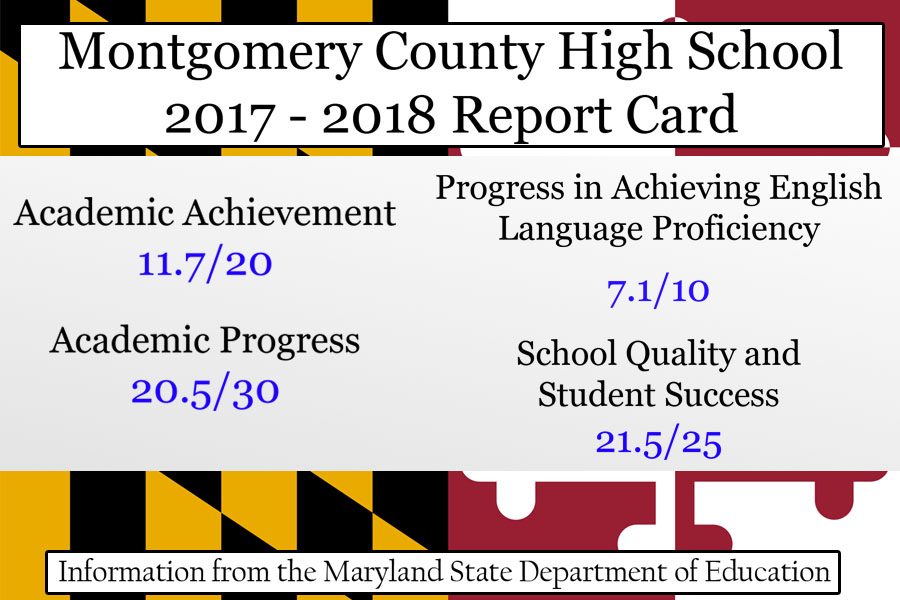MCPS Should Use State Accountability Report Cards to Help Improve Quality of All Schools
December 19, 2018
The Maryland State Department of Education (MSDE) distributed new statewide report cards Dec. 4, and in response, MCPS proposed a new initiative to create an Equity Accountability Report to measure school success. The Equity Accountability Report will focus on specific racial and socioeconomic groups. However, MCPS should utilize the data in the state report card as feedback in improving schools and should direct energy and resources to improving upon critiques rather than creating new accountability reports.
The MSDE released the report cards for every public school in Maryland as a new system of tracking and grading school performance. Schools were graded based on a list of criteria and were placed in a percentile based on their score, and subsequently, graded on a five-point star scale, with five being the highest score.
Schools were evaluated on a range of different measures including graduation rates, absenteeism, state assessment scores, college readiness, English proficiency and access to a well-rounded curriculum. Whereas past school report cards have focused solely on standardized test scores, the new Maryland report cards measure schools holistically, allowing more accurate school profiles and grades. Taking many factors into account when grading schools keeps county school officials accountable for all aspects of student success and therefore emphasizes the need for a well-rounded education.
The varied criteria also allows for more specific feedback to MCPS in what key areas need to be improved upon, such as academic achievement and English language proficiency. The report also highlighted big discrepancies between Hispanic/Latino students’ success as much lower compared to other minorities.
In response, Superintendent Jack Smith sent out a message Dec. 5 to the MCPS community to introduce the Equity Accountability Model.
“School improvement is inherently a local responsibility. We know our students best, how they are impacted, who is thriving, and who needs our support,” Smith said in the message.
While school improvement is by all means a local responsibility, it also requires feedback from external objective sources. From data in the report, it appears MCPS is lacking in their knowledge of students as only about half of MCPS high school students are achieving proficiency in English language arts tests and only slightly more than half of MCPS high schoolers are achieving proficiency in math. It is true that standardized tests are not ideal markers of achievement, but they are good methods for wide comparison as well as setting baselines for standards.
Furthermore, many components of the Equity Accountability Report, are similar, if not the same, as the Maryland State Report, as both are measuring academic achievement, graduation rate, academic progress and English language proficiency.
As one of the most affluent counties in the country, MCPS needs to revisit what works best for all students in this school system. Looking at the state report card in an honest, open way will help them plan and re-organize for future years.
With the new budget looming, MCPS needs to better allocate resources and funding to schools that scored lower on the report card and pay attention to factors that may lead to an increasing achievement gap, especially for Hispanics and Latinos. Instead of MCPS re-identifying the same problems spotlighted on the report card, they should focus on identifying solutions.
While the state report card grading system may not be perfect, it should nonetheless be given serious consideration by MCPS. This way more time can be spent studying students rather than creating additional repetitive reports.




